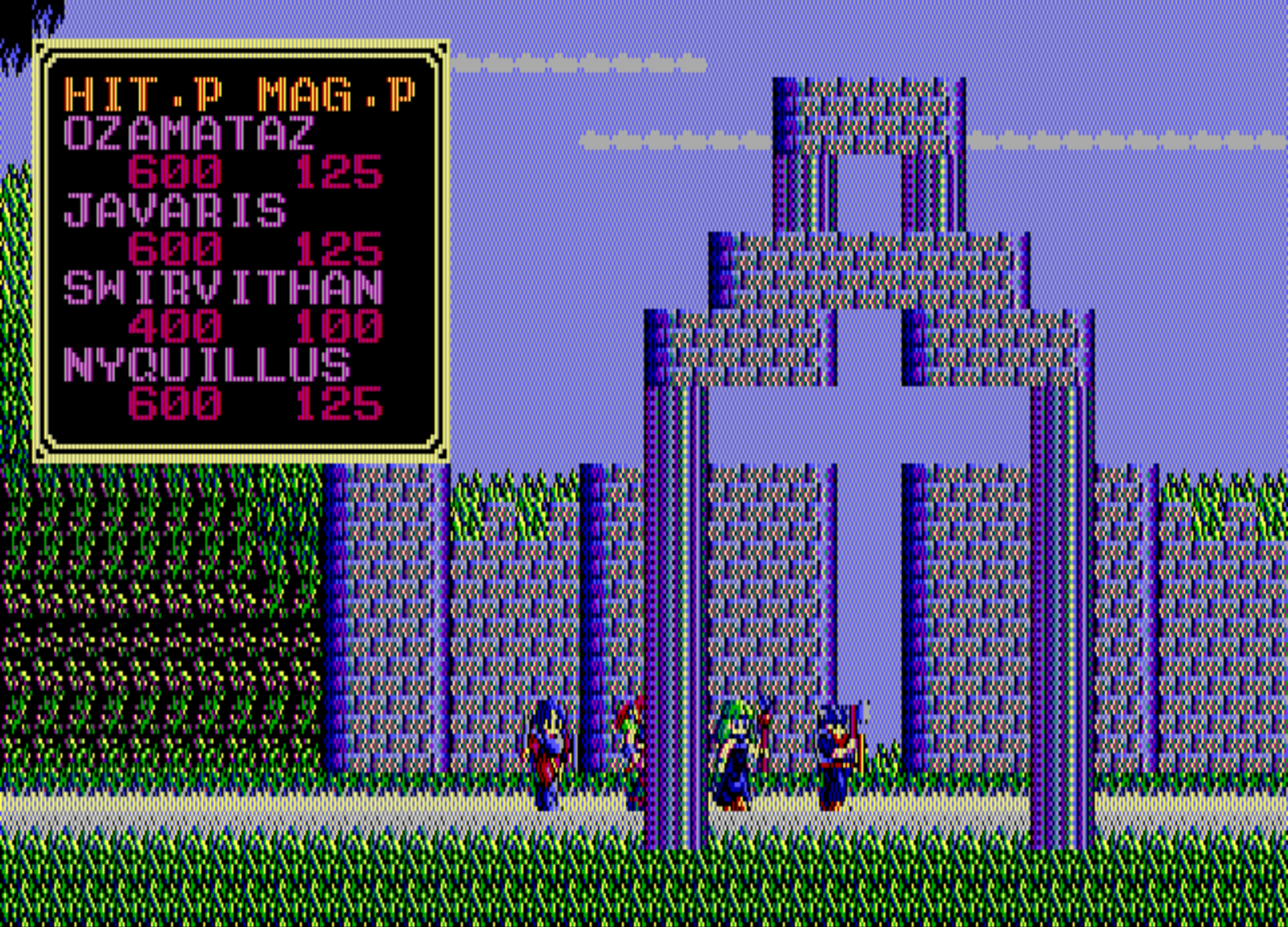
Other History Lessons posts can be found here. If you’re looking specifically for console games, those are here. As always, you may click on images to view larger versions.
I’ve been playing early console role-playing games (and action role-playing hybrids, and Metroidvanias), nominally trying to go in chronological order. But I haven’t been very successful at that. The farthest I’ve reached in terms of the timeline is September 1989, with SpellCaster, but I’ve since gone back in time again to fill in some games I missed. Several of those are entries in Nihon Falcom’s Dragon Slayer series, including Dragon Slayer IV: Drasle Family (AKA Legacy of the Wizard), and my most recent entry about Faxanadu, a spinoff game based on Xanadu, the second Dragon Slayer game. If I had my timeline in order, the next game after Faxanadu would have been Hydlide 3: The Space Memories, followed by the original Final Fantasy (which was actually the first post I wrote for this series, heh) and Phantasy Star. After that, we reach the fifth Dragon Slayer game, Sorcerian, originally released in late December, 1987.
Sorcerian is notable as an early example of a game designed to support expansion packs. The development team was tired of having to write the code for a game’s engine and systems every time they made a new game, so they tried a new approach with Sorcerian: it shipped with one disk for the game systems, and another disk with a collection of playable scenarios. Then Nihon Falcom — or others! — could release more scenario disks, which players could collect to continue their adventures. This formula proved successful, and Sorcerian was ported from the PC-88 to other home computer systems as well as consoles like the Mega Drive and PC Engine CD. Later, Sorcerian saw enhanced re-releases for Windows, and the wide range of scenarios to play mean that there are fans still playing it today (interested readers may enjoy this comprehensive feature about Sorcerian for more details). Unfortunately for me, all of those releases are Japan-only, without even any complete fan-made translations. The only time Sorcerian appeared in English was a version for MS-DOS, brought to US markets by Sierra On-Line in 1990. Which means I’ve found myself in the strange position of using comparatively fiddly DOSBox emulation to play it, rather than the console emulation I’ve used for everything else in this series so far.
Read More



